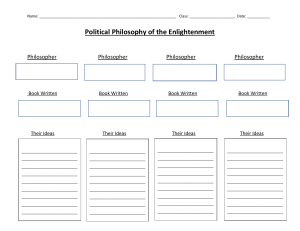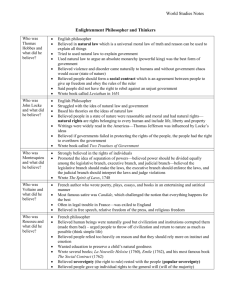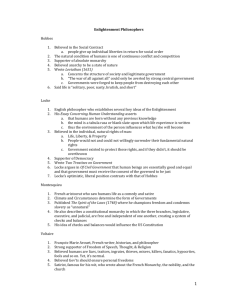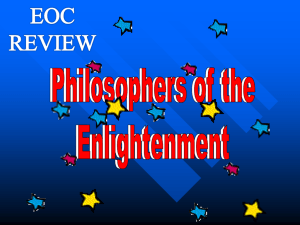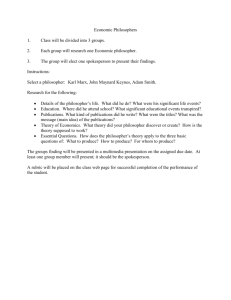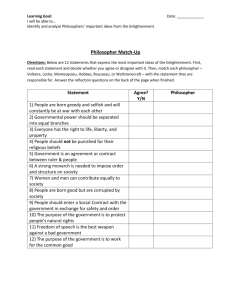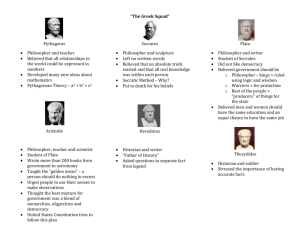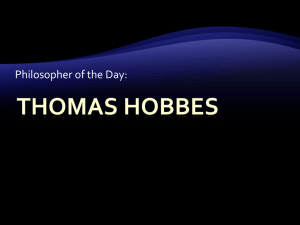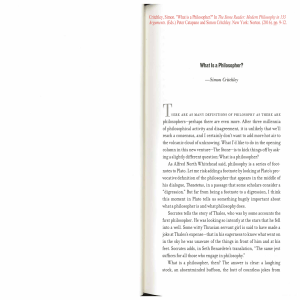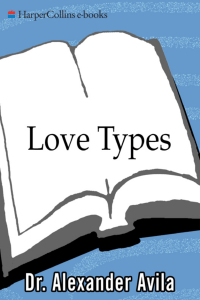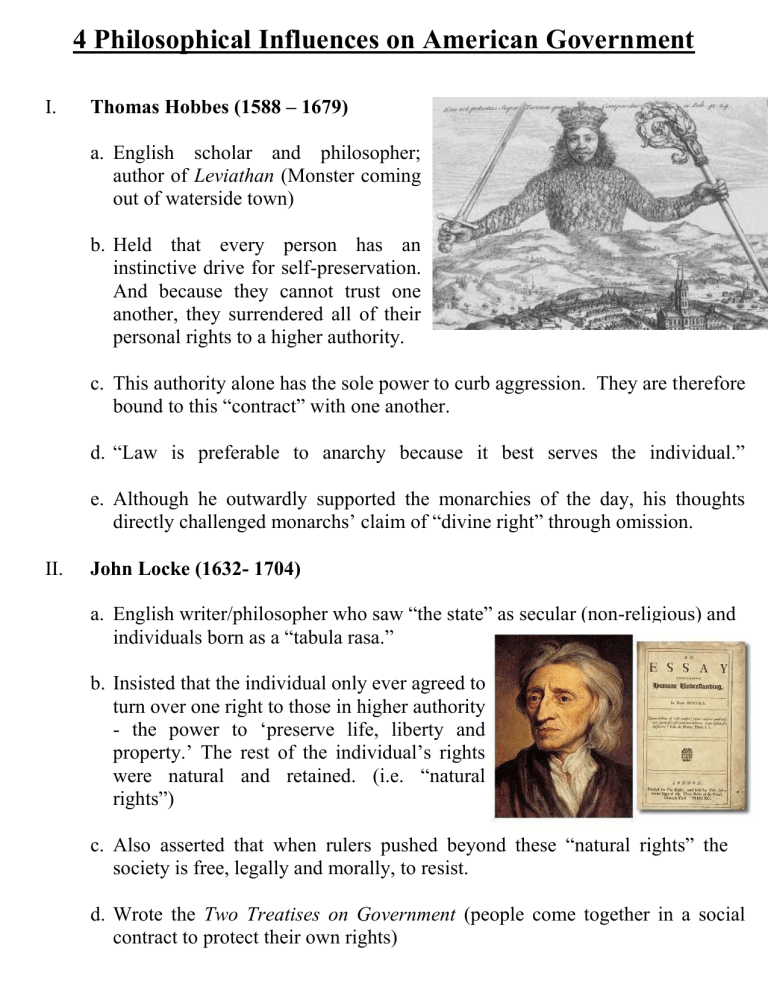
4 Philosophical Influences on American Government I. Thomas Hobbes (1588 – 1679) a. English scholar and philosopher; author of Leviathan (Monster coming out of waterside town) b. Held that every person has an instinctive drive for self-preservation. And because they cannot trust one another, they surrendered all of their personal rights to a higher authority. c. This authority alone has the sole power to curb aggression. They are therefore bound to this “contract” with one another. d. “Law is preferable to anarchy because it best serves the individual.” e. Although he outwardly supported the monarchies of the day, his thoughts directly challenged monarchs’ claim of “divine right” through omission. II. John Locke (1632- 1704) a. English writer/philosopher who saw “the state” as secular (non-religious) and individuals born as a “tabula rasa.” b. Insisted that the individual only ever agreed to turn over one right to those in higher authority - the power to ‘preserve life, liberty and property.’ The rest of the individual’s rights were natural and retained. (i.e. “natural rights”) c. Also asserted that when rulers pushed beyond these “natural rights” the society is free, legally and morally, to resist. d. Wrote the Two Treatises on Government (people come together in a social contract to protect their own rights) III. Jean-Jacques Rousseau (1712 – 1778) a. French – Swiss Philosopher who believed that people lived free in nature and that civilization had corrupted them. b. Held that the general will of the people was the sovereign power in an organized society because it was always right. c. He believed that “all” people should have a voice in government. d. Wrote book Social Contract (“All men are born free, but everywhere they are in chains.”) and Emile (Student who learned by direct experience) IV. Montesquieu (1689 – 1755)… really ‘Charles Louis de Secondat, Baron de…’ a. French attorney and philosopher who believed one system wouldn’t fit every society. b. Believed that different systems of government were appropriate for different peoples depending on their situation (economy, geography, social and religious traditions) c. Proposed system of organization based on English system (3 branches) of representative government which provided for a system of checks and balances in order to balance power. d. Wrote Spirit of the Laws (detailed 3 branch system and interaction b/t executive, judicial and legislative)
